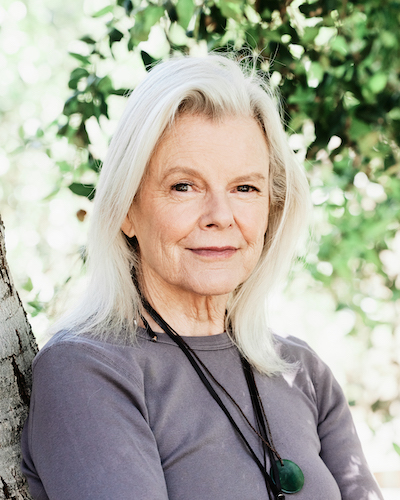Report on Corporate Sustainability Efforts and Institutional Governance in the Forestry Sector
Introduction: Corporate Advisory Appointment and Sustainable Development Goals
A senior advisory role has been established within the Royal Golden Eagle (RGE) group, filled by the former Director General of the Forest Stewardship Council (FSC), Kim Carstensen. This appointment is significant in the context of RGE’s subsidiary, Asia Pacific Resources International Holdings Ltd (APRIL), and its ongoing efforts to re-engage with the FSC certification scheme. The move has direct implications for several Sustainable Development Goals (SDGs), particularly those concerning responsible production, ecosystem protection, and institutional integrity.
- SDG 12 (Responsible Consumption and Production): APRIL’s pursuit of FSC re-certification represents an effort to align its operations with global standards for sustainable production.
- SDG 15 (Life on Land): The company’s history of alleged deforestation places its activities in direct relation to the goal of protecting terrestrial ecosystems.
- SDG 17 (Partnerships for the Goals): The relationship between RGE/APRIL and the FSC exemplifies a partnership aimed at advancing sustainability, though it is subject to scrutiny.
Background: Disassociation and Path to Re-engagement
The relationship between APRIL and the FSC has been complex, marked by a period of disassociation followed by a structured process toward reconciliation. This history underscores the challenges in enforcing standards that support the SDGs.
- 2013: The FSC disassociated from APRIL following complaints from non-governmental organisations (NGOs) regarding deforestation and human rights violations, actions contrary to SDG 15 (Life on Land) and SDG 16 (Peace, Justice and Strong Institutions). APRIL stated it left the scheme voluntarily due to its plantation establishment activities.
- 2020: APRIL submitted an “acknowledgement of harm” to the FSC, committing to remediation for past environmental and social impacts in Indonesia. This was viewed as a significant step toward accountability.
- 2023: A memorandum of understanding was signed between APRIL and the FSC, initiating a formal process to end the disassociation and work towards regaining certification, considered a benchmark for SDG 12.
Challenges to Achieving SDG Alignment
Ongoing Allegations and Stakeholder Opposition
Despite formal commitments, RGE and APRIL face persistent allegations from civil society organisations, which claim the companies’ practices continue to undermine key SDGs. These claims challenge the credibility of the re-certification process.
- NGOs, including Earthsight and Auriga Nusantara, have described potential recertification as “greenwashing,” citing evidence that implicates RGE in ongoing deforestation and community conflicts. These activities directly contradict the company’s 2015 no-deforestation, peatlands, or exploitation (NDPE) pledge and obstruct progress on SDG 15 and SDG 16.
- A recent Greenpeace investigation alleges connections between RGE and “shadow” companies responsible for forest loss in Indonesia.
- RGE has refuted these allegations, stating they are unsubstantiated claims intended to sabotage the company’s efforts to align with FSC standards.
Institutional Governance and Conflicts of Interest
The appointment of Mr. Carstensen has raised concerns regarding institutional governance and potential conflicts of interest, impacting perceptions of SDG 16 (Peace, Justice and Strong Institutions).
- Mr. Carstensen remains an individual member of the FSC, retaining voting rights on policy and board elections, while simultaneously advising an RGE group company seeking FSC certification.
- In response to inquiries, the FSC cited its use of Chatham House rules for member meetings, precluding disclosure of member activities and statements.
- This situation echoes previous concerns voiced by non-government groups regarding the FSC’s conflict of interest policies.
Conclusion: The Role of Certification in Advancing Global Goals
Legacy and the Future of Sustainable Forestry
Mr. Carstensen’s tenure at the FSC saw significant expansion of certified areas and the creation of new bodies to support sustainability objectives. This legacy highlights the potential of certification schemes to contribute to the SDGs, but also the persistent challenges in their implementation.
- Under his leadership, FSC certification grew to cover nearly 216 million hectares, a direct contribution to the sustainable management of forests under SDG 15.
- He oversaw the establishment of the FSC Indigenous Foundation, an initiative designed to protect the rights and interests of Indigenous peoples, aligning with SDG 16 and SDG 10 (Reduced Inequalities).
- However, his leadership period also faced controversy, with investigations revealing systemic flaws that allowed for forest destruction and human rights abuses within certified concessions.
The case of RGE/APRIL and the FSC underscores the critical tension between corporate sustainability commitments and verifiable performance. Achieving global goals such as SDG 12 and SDG 15 depends heavily on the strength and transparency of institutions like the FSC (SDG 16) and the integrity of partnerships between industry and civil society (SDG 17).
Analysis of SDGs, Targets, and Indicators
1. Which SDGs are addressed or connected to the issues highlighted in the article?
-
SDG 15: Life on Land
- The article is fundamentally about forest management. It discusses issues of deforestation, forest certification (FSC), remediation for past harm to forests in Indonesia, and the protection of forest ecosystems. The core conflict revolves around APRIL’s alleged role in “forest loss” and its efforts to regain an eco-certification for its forest products.
-
SDG 12: Responsible Consumption and Production
- The focus on the Forest Stewardship Council (FSC) certification, described as the “gold standard among wood products eco-labels,” directly relates to sustainable production patterns. The article explores a company’s attempt to adopt sustainable practices (or be perceived as doing so), the role of eco-labels in informing consumers, and accusations of “greenwashing,” which undermines responsible consumption.
-
SDG 16: Peace, Justice and Strong Institutions
- The article raises questions about the governance and integrity of institutions like the FSC. It highlights concerns over a “conflict of interest policy,” the transparency of member meetings under “Chatham House rules,” and “flaws that enable rogue companies to benefit from certification.” This connects to the need for effective, accountable, and transparent institutions.
-
SDG 8: Decent Work and Economic Growth
- The mention of “human rights violations,” “conflict with local communities,” and a corporate “no… exploitation (NDPE) pledge” relates to the protection of labor rights and the well-being of communities affected by corporate activities. The establishment of the “FSC Indigenous Foundation” to protect the interests of Indigenous peoples also touches upon ensuring inclusive economic benefits.
-
SDG 17: Partnerships for the Goals
- The entire narrative is built on the interactions between different stakeholders: a private company (APRIL/RGE), a multi-stakeholder organization (FSC), and civil society groups (NGOs like Greenpeace and Earthsight). The “memorandum of understanding” between APRIL and FSC is a clear example of a partnership aimed at achieving sustainability goals.
2. What specific targets under those SDGs can be identified based on the article’s content?
-
Under SDG 15 (Life on Land):
- Target 15.2: “promote the implementation of sustainable management of all types of forests, halt deforestation, restore degraded forests…” This is central to the article. APRIL’s history of “deforestation,” its 2015 “no-deforestation” pledge, its commitment to “remediate for past harm,” and its pursuit of FSC certification are all directly related to achieving sustainable forest management and halting deforestation.
-
Under SDG 12 (Responsible Consumption and Production):
- Target 12.6: “Encourage companies… to adopt sustainable practices and to integrate sustainability information into their reporting cycle.” APRIL’s pursuit of FSC certification is an attempt to adopt and demonstrate sustainable practices. Its “acknowledgement of harm” letter and “NDPE pledge” are forms of integrating sustainability information.
-
Under SDG 16 (Peace, Justice and Strong Institutions):
- Target 16.6: “Develop effective, accountable and transparent institutions at all levels.” The article questions the effectiveness and accountability of the FSC by citing NGO concerns about its “conflict of interest policy” and its ability to prevent “rogue companies” from getting certified.
-
Under SDG 8 (Decent Work and Economic Growth):
- Target 8.8: “Protect labour rights and promote safe and secure working environments…” The allegations of “human rights violations” and “exploitation” directly challenge the fulfillment of this target within the company’s supply chain.
-
Under SDG 17 (Partnerships for the Goals):
- Target 17.17: “Encourage and promote effective public, public-private and civil society partnerships…” The relationship between APRIL (private sector) and FSC (a multi-stakeholder civil society body) is a direct example of such a partnership, with the article detailing its complexities, including the 2023 “memorandum of understanding.”
3. Are there any indicators mentioned or implied in the article that can be used to measure progress towards the identified targets?
-
For Target 15.2:
- Indicator (Directly Mentioned): The area of certified forest land. The article states that under Carstensen’s leadership, the FSC grew to certify “nearly 216 million hectares of land in 89 countries.” This is a direct quantitative indicator of progress in sustainable forest management.
- Indicator (Implied): The rate of deforestation linked to a company. Allegations by NGOs of “ongoing deforestation” by companies linked to RGE serve as a negative indicator, measuring a lack of progress.
-
For Target 12.6:
- Indicator (Implied): The number of companies with recognized sustainability certifications. Whether or not APRIL achieves FSC recertification is a key indicator of its adoption of sustainable practices.
- Indicator (Implied): The existence and adherence to corporate sustainability pledges. The article mentions APRIL’s “no-deforestation, peatlands or exploitation (NDPE) pledge made in 2015,” and NGO reports are used to measure adherence to it.
-
For Target 16.6:
- Indicator (Implied): The existence and transparency of institutional governance policies. The article specifically points to FSC’s “conflict of interest policy” as a key area of concern, implying that the quality and enforcement of such policies are indicators of institutional accountability.
-
For Target 8.8:
- Indicator (Implied): The number of reported incidents of rights violations. The “complaints from non-government organisations (NGOs) concerning… human rights violations” and “conflict with local communities” serve as an informal indicator of progress (or lack thereof) in protecting rights.
-
For Target 17.17:
- Indicator (Directly Mentioned): The existence of formal partnership agreements. The “memorandum of understanding with FSC in 2023” is a specific, documented indicator of a partnership being formed.
4. Table of SDGs, Targets, and Indicators
| SDGs | Targets | Indicators |
|---|---|---|
| SDG 15: Life on Land | 15.2: Promote sustainable management of all types of forests, halt deforestation, restore degraded forests. |
|
| SDG 12: Responsible Consumption and Production | 12.6: Encourage companies to adopt sustainable practices and integrate sustainability information. |
|
| SDG 16: Peace, Justice and Strong Institutions | 16.6: Develop effective, accountable and transparent institutions. |
|
| SDG 8: Decent Work and Economic Growth | 8.8: Protect labour rights and promote safe and secure working environments. |
|
| SDG 17: Partnerships for the Goals | 17.17: Encourage and promote effective public-private and civil society partnerships. |
|
Source: eco-business.com







